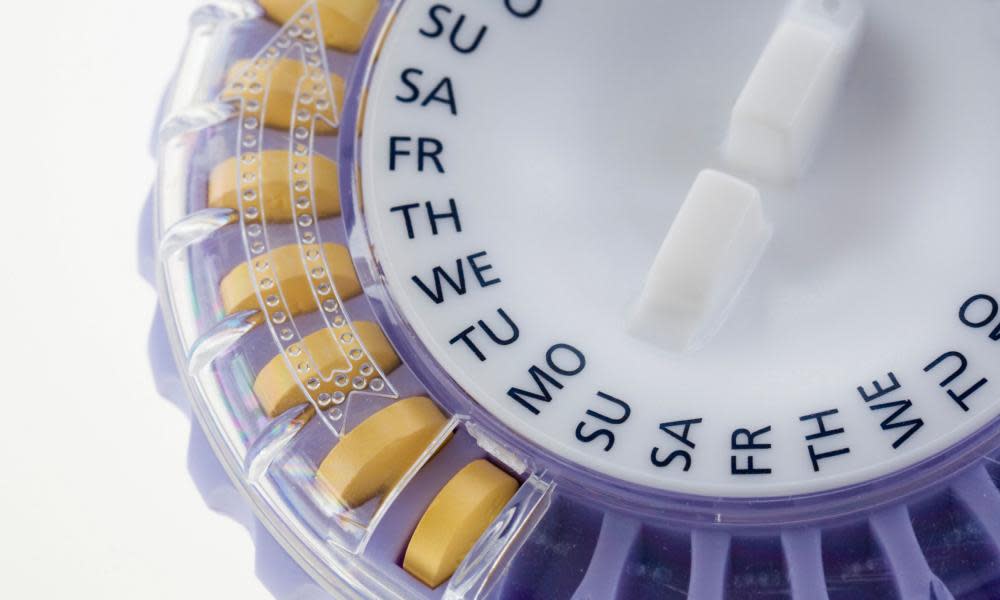UK pharmacists to offer alternatives to out of stock HRT products

Pharmacists will be allowed to offer alternative hormone replacement therapy products if the original prescription is out of stock, under new rules aimed at tackling the ongoing shortage.
The relaxing of normal prescribing rules, announced by the government’s HRT supply taskforce, comes amid shortages of HRT products that have left some women travelling across the country to access medicines.
It follows calls, highlighted by the Guardian, by pharmacists to be allowed to dispense substitute versions of medicines without having to contact the prescriber – normally a GP – for permission each time.
Health and Social Care Secretary, Sajid Javid, said: “We are working to ensure HRT is available for everyone who needs it and I am pleased to see suppliers continuing to increase the supply of some products which is a testament to the collaborative approach being taken.”
“Meetings with suppliers are ongoing and we’re taking decisive action to manage HRT supply issues and reduce any delays – this includes issuing further SSPs so that women are able to access the medication they need.”
Under the Serious Shortage Protocols (SSPs) announced by Javid, pharmacists will be able to offer patients another product to relieve their symptoms if their normal HRT is out of stock.
At the end of April, the government issued three SSPs to restrict dispensing for Oestrogel, Ovestin and Premique Low Dose to three months’ supply to help relieve pressure in the system.
The two new further SSPs are for Lenzetto transdermal spray and Sandrena gel, which will also be put on a three-month supply. Under the rules, all these items can generally be substituted for transdermal patches.
Prof Claire Anderson, president of the Royal Pharmaceutical Society, welcomed the news, saying that the short term measure would help women access supplies of HRT medicines which are difficult to get hold of.
“The advice on which HRT product to substitute with another has been drawn up by experts and women can be confident they will receive what’s appropriate for them,” she said. “Women should talk to their pharmacist if they have any concerns about their HRT medicines.”
However, she added that the bureaucracy involved in completing the SSP process for each patient is “quite burdensome” and said that it would still be essential to resolve the underlying HRT shortage as soon as possible.
“Ultimately we’d like to see a change in the law which makes the whole process easier and quicker for both pharmacists and patients,” she added.
Dr Edward Morris, president of the Royal College of Obstetricians and Gynaecologists, welcomed the move: “This is really sensible. Pharmacists generally know their drugs. They often make those switches in other areas where the laws allow it. They should be allowed to do this for HRT and it will save a lot of bother for women.”
There have been acute shortages of some HRT products, which are used by about 1 million women in the UK to treat symptoms of the menopause. The number of HRT products prescribed in England has more doubled in the last five years, contributing to stocks running low, while manufacturers have also reported supply problems.
Thousands of menopausal women have struggled to access medication, which has led to some resorting to buying medicines online or even sharing medication with friends.
In the new announcement, the government said there had been recent further deliveries of the popular products Oestrogel, Ovestin and Premique Low Dose. Premique now has good availability, it said, while the manufacturers of Oestrogel and Ovestin are working to increase UK supply.
Head of the HRT supply taskforce, Madelaine McTernan, said: “I am very encouraged by the constructive engagement across the sector and enthusiasm with which suppliers and pharmacists are looking to work with us to meet this challenge.
“Focusing both on measures that ensure we can use stocks most efficiently whilst also ensuring supply is increased is critical.”

 Yahoo Movies
Yahoo Movies 
